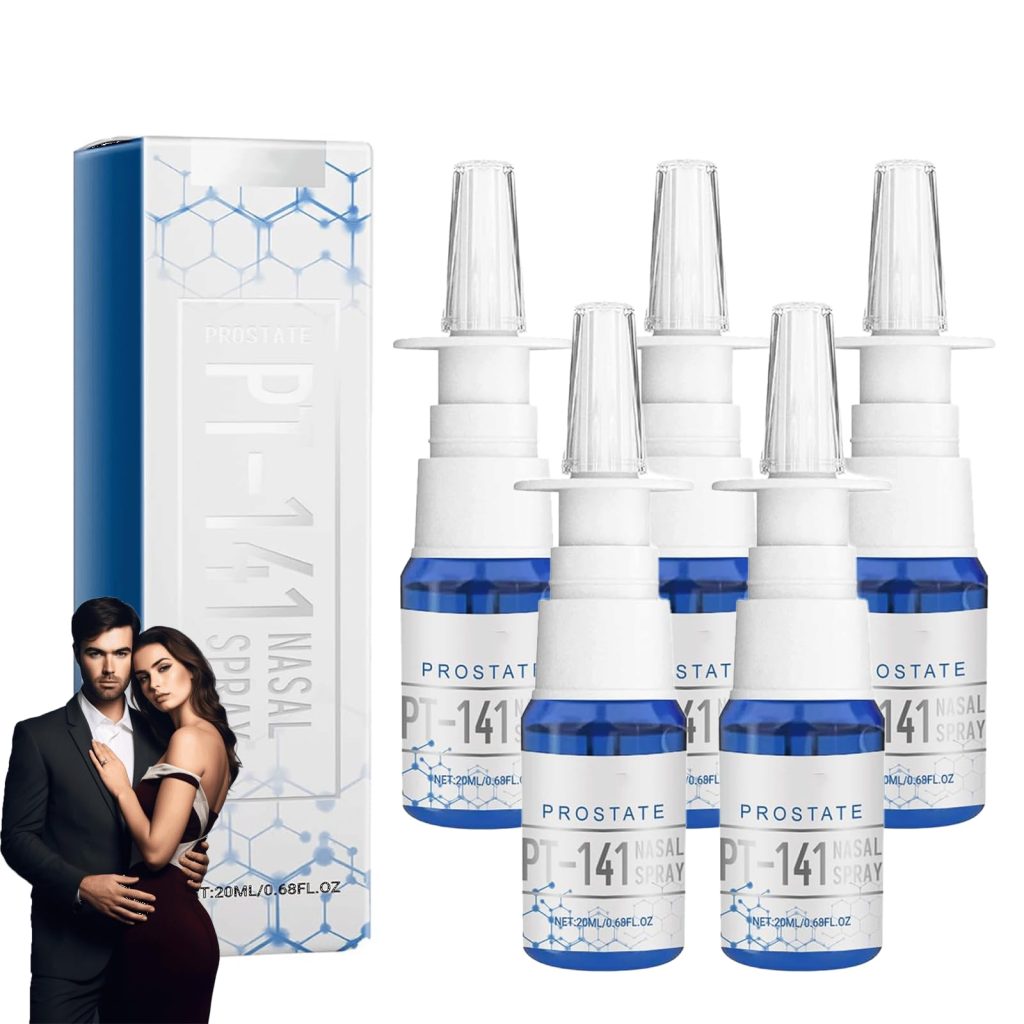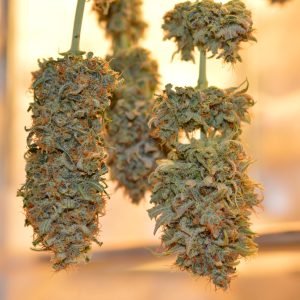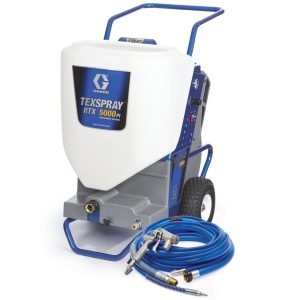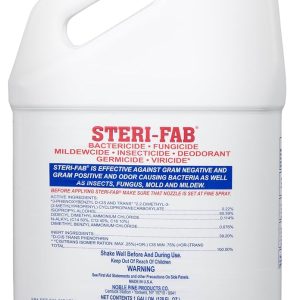
PT-141 peptide nasal spray represents a revolutionary approach to addressing sexual dysfunction through targeted melanocortin receptor activation. This synthetic peptide, also known as bremelanotide, has garnered significant attention in the medical and research communities for its unique mechanism of action and potential therapeutic applications. Unlike traditional treatments that focus on vascular mechanisms, PT-141 peptide nasal spray works directly on the central nervous system to potentially enhance sexual desire and arousal through neurological pathways.
The development of PT-141 peptide nasal spray stems from extensive research into melanocortin receptors and their role in sexual behavior. Originally derived from the hormone α-MSH (alpha-melanocyte stimulating hormone), this peptide has undergone rigorous testing to understand its effects on human physiology. The nasal spray formulation offers several advantages over other delivery methods, including improved bioavailability, faster onset of action, and reduced systemic exposure compared to injectable forms.
Understanding PT-141 Peptide: The Science Behind the Spray
PT-141 peptide nasal spray functions as a melanocortin receptor agonist, specifically targeting MC3R and MC4R receptors in the brain. These receptors play crucial roles in regulating sexual behavior, appetite, and energy homeostasis. When PT-141 binds to these receptors, it triggers a cascade of neurological responses that can potentially enhance sexual desire and arousal in both men and women. This mechanism differs fundamentally from phosphodiesterase-5 inhibitors like sildenafil, which primarily affect blood flow to genital tissues.
The peptide structure of PT-141 consists of seven amino acids arranged in a specific sequence that allows it to cross the blood-brain barrier effectively. This characteristic is particularly important for its therapeutic potential, as the target receptors are located in the central nervous system rather than peripheral tissues. Research has shown that PT-141 peptide nasal spray can achieve therapeutic concentrations in the brain within 30-60 minutes of administration, making it a potentially rapid-acting treatment option.
Clinical studies have demonstrated that PT-141 peptide nasal spray may offer benefits for individuals experiencing hypoactive sexual desire disorder (HSDD) and other forms of sexual dysfunction. The peptide’s ability to work through central nervous system pathways makes it particularly interesting for cases where psychological factors contribute to sexual difficulties. Unlike treatments that primarily address physical aspects of sexual dysfunction, PT-141 may help address both psychological and physiological components simultaneously.
Mechanism of Action: How PT-141 Peptide Nasal Spray Works
The therapeutic effects of PT-141 peptide nasal spray begin with its interaction with melanocortin receptors in the hypothalamus and other brain regions involved in sexual behavior. When administered nasally, the peptide is absorbed through the nasal mucosa and enters the bloodstream, eventually crossing the blood-brain barrier to reach its target receptors. This process typically occurs within 15-30 minutes of administration, with peak concentrations achieved within 1-2 hours.
Upon binding to MC3R and MC4R receptors, PT-141 activates intracellular signaling pathways that involve cyclic adenosine monophosphate (cAMP) and protein kinase A. These biochemical changes lead to alterations in neurotransmitter release, particularly affecting dopamine and norepinephrine pathways associated with sexual arousal and desire. The result is a complex neurochemical response that can potentially enhance sexual motivation and responsiveness.
Research indicates that PT-141 peptide nasal spray may also influence other physiological processes related to sexual function. The peptide has been shown to affect heart rate, blood pressure, and skin pigmentation in some individuals, suggesting its broad impact on melanocortin receptor systems throughout the body. These effects are generally mild and transient, but they highlight the peptide’s systemic activity beyond its primary sexual enhancement properties.
The duration of action for PT-141 peptide nasal spray typically ranges from 6-12 hours, depending on individual factors such as metabolism, body weight, and receptor sensitivity. This relatively long duration of action allows for flexibility in timing and may reduce the need for frequent dosing compared to shorter-acting treatments. However, individual responses can vary significantly, and some users may experience effects for shorter or longer periods.
Clinical Research and Evidence Supporting PT-141 Peptide Nasal Spray
Extensive clinical research has been conducted to evaluate the safety and efficacy of PT-141 peptide nasal spray for treating sexual dysfunction. Multiple Phase II and Phase III clinical trials have demonstrated promising results, particularly in premenopausal women with hypoactive sexual desire disorder. These studies have shown statistically significant improvements in sexual desire, arousal, and satisfaction compared to placebo treatments.
One landmark study published in the Journal of Sexual Medicine examined the effects of PT-141 peptide nasal spray in 327 premenopausal women with HSDD. The results showed that women receiving the peptide treatment experienced significant improvements in sexual desire scores, with 25% achieving meaningful clinical benefits compared to 17% in the placebo group. Additionally, the study reported improvements in sexual arousal and decreased distress related to sexual dysfunction.
| Study Parameter | PT-141 Group | Placebo Group | P-Value |
|---|---|---|---|
| Improved Sexual Desire | 25% | 17% | <0.05 |
| Arousal Enhancement | 28% | 19% | <0.05 |
| Reduced Sexual Distress | 22% | 15% | <0.05 |
| Overall Satisfaction | 31% | 20% | <0.01 |
Research has also investigated the potential benefits of PT-141 peptide nasal spray for men with erectile dysfunction and other sexual health issues. While the primary focus has been on female sexual dysfunction, preliminary studies suggest that the peptide may offer benefits for men as well, particularly those whose sexual difficulties have psychological components. However, more research is needed to fully understand its efficacy in male populations.
Safety data from clinical trials indicate that PT-141 peptide nasal spray is generally well-tolerated, with most adverse events being mild to moderate in severity. The most commonly reported side effects include nausea, flushing, headache, and nasal irritation. These effects are typically transient and resolve within a few hours of administration. Importantly, the peptide does not appear to cause significant cardiovascular side effects, making it potentially suitable for individuals who cannot use traditional erectile dysfunction medications.
Dosage and Administration Guidelines for PT-141 Peptide Nasal Spray
Proper dosing of PT-141 peptide nasal spray is crucial for achieving optimal therapeutic benefits while minimizing potential side effects. Clinical studies have established that the recommended dose is typically 1.75 mg administered intranasally at least 45 minutes before anticipated sexual activity. This dosing regimen has been shown to provide the best balance of efficacy and tolerability in most individuals.
The nasal spray formulation allows for precise dosing and easy administration. Each spray typically delivers a measured amount of peptide, and users should follow the specific instructions provided with their prescription. It’s important to note that PT-141 peptide nasal spray should not be used more than once within a 24-hour period, and the maximum recommended frequency is no more than 8 doses per month to avoid potential tolerance development.
Individual dosing requirements may vary based on factors such as body weight, metabolism, and individual sensitivity to the peptide. Some users may find that they require slight adjustments to the standard dose to achieve optimal results. However, any dosing modifications should only be made under the guidance of a qualified healthcare provider who can monitor for efficacy and safety.
The timing of administration is also important for maximizing the benefits of PT-141 peptide nasal spray. The peptide should be administered at least 45 minutes before sexual activity to allow for absorption and onset of action. Some users may find that the effects are more pronounced when the peptide is administered 60-90 minutes before anticipated use, allowing for peak drug levels to coincide with sexual activity.
Potential Side Effects and Safety Considerations
While PT-141 peptide nasal spray is generally well-tolerated, users should be aware of potential side effects and safety considerations. The most commonly reported adverse effects include nausea, which occurs in approximately 40-50% of users, typically within 1-2 hours of administration. This side effect is usually mild to moderate and resolves spontaneously within 4-6 hours.
Flushing and facial redness are also frequently reported, occurring in about 20-30% of users. This effect is related to the peptide’s interaction with melanocortin receptors and typically manifests as a warm, flushed feeling in the face and upper body. While generally harmless, this side effect can be bothersome for some users and may affect their comfort during intimate activities.
Headache is another common side effect, reported by approximately 15-25% of users. These headaches are typically mild and can often be managed with over-the-counter pain relievers if necessary. Some users find that staying well-hydrated before and after using PT-141 peptide nasal spray can help reduce the likelihood and severity of headaches.
Nasal irritation and congestion may occur due to the local effects of the nasal spray formulation. These effects are usually mild and temporary, but users with pre-existing nasal conditions should discuss their use of the peptide with their healthcare provider. In rare cases, some individuals may experience more severe nasal irritation that requires discontinuation of the treatment.
More serious but less common side effects can include significant changes in blood pressure, particularly in individuals with pre-existing cardiovascular conditions. While PT-141 peptide nasal spray generally has a favorable cardiovascular profile, users with heart conditions should use the peptide only under medical supervision. Additionally, some users may experience mood changes or alterations in appetite, which are related to the peptide’s effects on melanocortin receptors.
Comparing PT-141 Peptide Nasal Spray to Other Treatments
PT-141 peptide nasal spray offers several advantages over traditional treatments for sexual dysfunction. Unlike phosphodiesterase-5 inhibitors such as sildenafil, tadalafil, and vardenafil, which primarily work by increasing blood flow to genital tissues, PT-141 works through central nervous system pathways. This mechanism makes it potentially effective for individuals whose sexual difficulties have psychological or neurological components.
The nasal spray delivery method provides several benefits compared to oral medications. Nasal administration bypasses first-pass metabolism in the liver, potentially leading to more consistent drug levels and reduced inter-individual variability. Additionally, the faster onset of action with nasal administration (30-60 minutes vs. 60-120 minutes for most oral medications) may provide greater spontaneity in sexual activities.
For women with sexual dysfunction, PT-141 peptide nasal spray represents one of the few FDA-approved treatments specifically designed for female sexual health issues. Traditional treatments like topical hormones or oral medications often have limited efficacy for female sexual dysfunction, making PT-141 a potentially valuable addition to treatment options.
The side effect profile of PT-141 peptide nasal spray also differs from traditional treatments. While it may cause nausea and flushing, it typically does not cause the visual disturbances, prolonged erections, or significant cardiovascular effects associated with some oral erectile dysfunction medications. This different side effect profile may make it suitable for individuals who cannot tolerate traditional treatments.
However, PT-141 peptide nasal spray may not be suitable for everyone. The peptide’s effects on melanocortin receptors can cause skin darkening in some individuals, particularly with repeated use. Additionally, the cost of peptide treatments is often higher than traditional oral medications, which may limit accessibility for some patients.
Research Applications and Future Developments
Current research into PT-141 peptide nasal spray extends beyond its established use for sexual dysfunction. Scientists are investigating its potential applications for treating other conditions related to melanocortin receptor dysfunction, including certain types of obesity, mood disorders, and cognitive impairment. The peptide’s ability to cross the blood-brain barrier and interact with central nervous system receptors makes it an attractive candidate for neurological applications.
Ongoing clinical trials are examining the long-term safety and efficacy of PT-141 peptide nasal spray in diverse populations. These studies are particularly important for understanding how the peptide performs in real-world settings and for identifying any potential long-term effects that may not be apparent in shorter clinical trials. Researchers are also investigating optimal dosing strategies and potential combination therapies that might enhance the peptide’s therapeutic benefits.
The development of new formulations and delivery methods for PT-141 continues to be an active area of research. Scientists are exploring sublingual tablets, transdermal patches, and other delivery systems that might offer advantages over the current nasal spray formulation. These alternative delivery methods could potentially improve patient compliance, reduce side effects, or provide more consistent drug levels.
Future research may also focus on identifying biomarkers that can predict which individuals are most likely to benefit from PT-141 peptide nasal spray treatment. Understanding individual variations in melanocortin receptor expression and function could help clinicians personalize treatment approaches and optimize therapeutic outcomes for each patient.
Interactions and Contraindications
PT-141 peptide nasal spray has several important drug interactions and contraindications that users should be aware of. The peptide can interact with medications that affect blood pressure, as it may cause transient increases in blood pressure in some individuals. Patients taking antihypertensive medications should be monitored closely when starting PT-141 treatment, and dose adjustments of blood pressure medications may be necessary.
The peptide may also interact with other medications that affect the central nervous system, including certain antidepressants, antipsychotics, and anxiolytics. These interactions can potentially alter the effectiveness of either medication or increase the risk of side effects. Patients taking multiple medications should provide their healthcare provider with a complete list of all medications, including over-the-counter drugs and supplements.
Contraindications for PT-141 peptide nasal spray include severe cardiovascular disease, uncontrolled hypertension, and known hypersensitivity to the peptide or any of its components. The peptide should not be used by individuals with certain types of melanoma or other skin cancers, as its effects on melanocortin receptors could potentially stimulate cancer cell growth.
Pregnancy and breastfeeding are also contraindications for PT-141 use, as the effects of the peptide on fetal development and infant health are not well-established. Women of childbearing age should use effective contraception while using the peptide and should discontinue use if pregnancy is suspected.
For those interested in understanding more about nasal spray medications and their duration of action, you might find information about how long does ketamine nasal spray last helpful for comparison purposes.
Cost and Accessibility Considerations
The cost of PT-141 peptide nasal spray can be a significant factor in treatment decisions for many patients. As a specialty peptide medication, PT-141 is typically more expensive than traditional oral medications for sexual dysfunction. The cost can vary significantly depending on the pharmacy, insurance coverage, and specific formulation used.
Insurance coverage for PT-141 peptide nasal spray varies widely among different insurance plans and providers. Some insurance companies may cover the medication for specific indications, while others may require prior authorization or consider it an experimental treatment. Patients should check with their insurance provider to understand their coverage options and potential out-of-pocket costs.
Several patient assistance programs and pharmacy discount programs may be available to help reduce the cost of PT-141 peptide nasal spray. These programs can provide significant savings for eligible patients, particularly those without insurance coverage or with high deductibles. Patients should inquire with their healthcare provider or pharmacist about available assistance programs.
The accessibility of PT-141 peptide nasal spray may also be limited by the availability of prescribing physicians and specialized pharmacies. Not all healthcare providers are familiar with peptide therapies, and some patients may need to seek care from specialists who have experience with these treatments. Additionally, the medication may need to be obtained from specialized compounding pharmacies that have experience with peptide preparations.
Storage and Handling Requirements
Proper storage and handling of PT-141 peptide nasal spray is essential for maintaining its potency and safety. The peptide is sensitive to temperature, light, and moisture, and improper storage can lead to degradation and reduced effectiveness. Most formulations should be stored in a refrigerator at temperatures between 2-8°C (36-46°F) and protected from light.
The nasal spray device should be kept upright when not in use to prevent leakage and maintain proper dosing accuracy. Users should avoid freezing the medication, as this can damage the peptide structure and affect its therapeutic activity. If the medication accidentally freezes, it should be discarded and replaced with a fresh supply.
Before each use, PT-141 peptide nasal spray should be allowed to reach room temperature if it has been stored in the refrigerator. This typically takes 10-15 minutes and helps ensure comfortable administration and optimal absorption. Users should also prime the nasal spray device according to the manufacturer’s instructions to ensure accurate dosing.
The shelf life of PT-141 peptide nasal spray is typically 12-24 months when stored properly, but users should always check the expiration date on their specific medication. Expired peptide medications should not be used, as they may be less effective or potentially harmful. Any unused medication should be disposed of properly according to local regulations for pharmaceutical waste.
Legal and Regulatory Status
The legal and regulatory status of PT-141 peptide nasal spray varies by country and jurisdiction. In the United States, the peptide has received FDA approval for specific indications, particularly for treating hypoactive sexual desire disorder in premenopausal women. However, the regulatory landscape for peptide medications continues to evolve, and patients should stay informed about current regulations.
In some countries, PT-141 peptide nasal spray may be available only through specialized clinics or research programs, while in others, it may be more widely available through regular prescription channels. Patients interested in accessing the medication should consult with their healthcare provider about the legal options available in their location.
The importation and possession of PT-141 peptide nasal spray may be subject to specific regulations in different countries. Some jurisdictions may require special permits or may restrict the use of peptide medications to certain medical conditions. Patients should be aware of these regulations, particularly if they travel frequently or live in areas with restrictive medication laws.
Online availability of PT-141 peptide nasal spray through various websites and suppliers raises important safety and legal concerns. Many of these sources may not provide authentic, properly manufactured, or safely stored medications. Patients should only obtain the peptide through legitimate pharmaceutical channels and with proper medical supervision to ensure safety and efficacy.
Frequently Asked Questions About PT-141 Peptide Nasal Spray
What is PT-141 peptide nasal spray used for? PT-141 peptide nasal spray is primarily used to treat hypoactive sexual desire disorder (HSDD) in premenopausal women. It works by activating melanocortin receptors in the brain to potentially enhance sexual desire and arousal through central nervous system pathways.
How long does it take for PT-141 peptide nasal spray to work? The onset of action for PT-141 peptide nasal spray typically occurs within 30-60 minutes of administration, with peak effects usually achieved within 1-2 hours. The duration of action can range from 6-12 hours, depending on individual factors.
What are the most common side effects of PT-141 peptide nasal spray? The most frequently reported side effects include nausea (40-50% of users), flushing (20-30%), headache (15-25%), and nasal irritation. These effects are usually mild to moderate and resolve within a few hours.
Can PT-141 peptide nasal spray be used by men? While clinical research has primarily focused on women with sexual dysfunction, some studies suggest that PT-141 may offer benefits for men as well, particularly those whose sexual difficulties have psychological components. However, more research is needed to establish its efficacy in male populations.
How often can PT-141 peptide nasal spray be used? The recommended maximum frequency is no more than 8 doses per month, with at least 24 hours between doses. This limitation helps prevent tolerance development and reduces the risk of side effects.
Is PT-141 peptide nasal spray safe for long-term use? Current research suggests that PT-141 peptide nasal spray is generally safe for long-term use when used as directed. However, long-term studies are ongoing, and users should maintain regular follow-up with their healthcare provider.
Does PT-141 peptide nasal spray require a prescription? Yes, PT-141 peptide nasal spray requires a prescription from a qualified healthcare provider. It is not available as an over-the-counter medication and should only be used under medical supervision.
Can PT-141 peptide nasal spray be used with other medications? PT-141 can interact with certain medications, particularly those affecting blood pressure and the central nervous system. Patients should provide their healthcare provider with a complete list of all medications before starting treatment.
Ready to explore whether PT-141 peptide nasal spray might be right for you? Consult with a qualified healthcare provider to discuss your options and determine if this innovative treatment could help address your sexual health concerns.
Sources:





